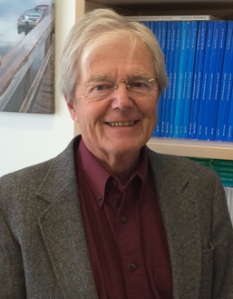“As a part of that review process, an unidentified reviewer made a statement suggesting that one of the more intriguing things about your paper is something that you have said very little about, encouraging us in the future to work on the development and elaboration of the notion of ownership as a psychological phenomenon — “What is psychological ownership?”
Meeting Jon L. Pierce for the first time is a truly inspiring event – especially as a fellow researcher who studies the phenomenon of psycholgical ownership, an area Jon has greatly influenced over the past decades. As a Professor of Organization and Management in the Department of Management Studies, at the Labovitz School of Business and Economics, University of Minnesota Duluth (UMD), he was named one of the University of Minnesota’s Horace T. Morse Distinguished Professors in recognition of excellence in teaching and research in the areas of organizational studies in 2005. In the same year, he received the UMD Chancellor’s Award for Outstanding Research. Apart from research on psychological ownership, Jon Pierce also contributes to the field of psychology of work. He co-authored one of the most influential articles on the state of psychological ownership in 2003 and published his work in the field in numerous scientific outlets.

In his featured interview, Jon explains how his interest in ownership as a psychological rather than a legal phenomenon has been shaped by a reviewer’s comment in 1991 and how this very comment inspired him to look into child development and animal territoriality literature. This also led to important, collegial relationships later on. Further, he talks about what surprises him and what areas of research he considers to be most promising. Click here for the full interview.

